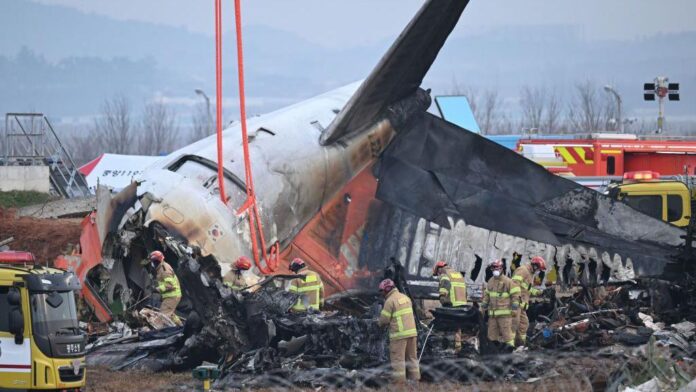A catastrophic mistake in the cockpit led to the deadly Jeju Air crash that claimed 179 lives, according to a bombshell report released by aviation investigators.
The probe revealed that the pilots of Flight 802, en route from Seoul to Jeju Island, mistakenly shut down the working engine after a fault alert from the other. The tragic miscalculation caused the aircraft to lose thrust midair, leading to a rapid descent and fatal impact just minutes from its destination.
The final investigation report, released by South Korea’s Aviation and Railway Accident Investigation Board (ARAIB), paints a grim picture of miscommunication, cockpit confusion, and critical failure in following standard procedures.
“This was a preventable disaster,” the report stated. “The pilots’ decision to shut down the wrong engine left the aircraft powerless at a critical moment.”
The crash, which occurred three months ago, sent shockwaves through the global aviation community. With 179 passengers and crew perishing in the fiery wreckage, it stands as one of South Korea’s deadliest aviation tragedies in recent history.
Jeju Air, once praised for its safety record, is now facing intense scrutiny. The airline expressed “deep sorrow” and vowed to overhaul its pilot training and emergency response protocols.
As grieving families demand accountability, the report reignites urgent calls for stricter cockpit training and real-time decision-making support systems to prevent such fatal errors from repeating.
Flight 802’s legacy may now serve as a harrowing lesson in the sky: when seconds count, precision is everything.




